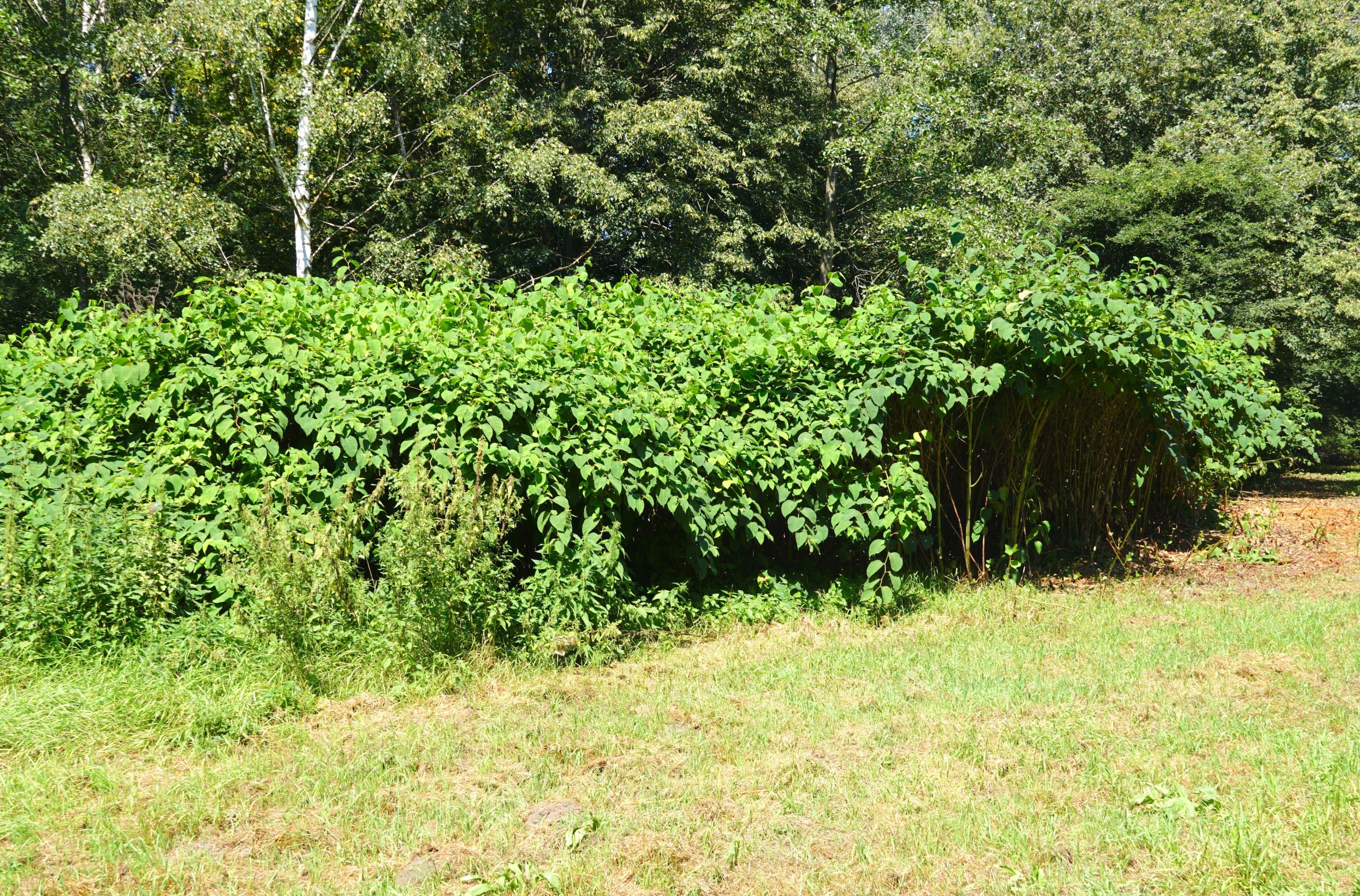
It’s Japanese knotweed time again. This dastardly invasive plant is the scourge of many a building contractor and homeowner and, while there does appear to be some debate about how damaging a knotweed infestation actually is to the value of land or properties (see the Telegraph’s article The Japanese knotweed con exposed here), it should certainly not be left to run riot due to its ecological impact and affect on native species.
Recent – March 2023 – research entitled ‘Assessing the relative impacts and economic costs of Japanese knotweed management methods’ by Dr Sophie Hocking at Swansea University (click here), states that the cost of managing Japanese knotweed in the UK is £165.6 million a year! Her report, based on a previous well known field study by Swansea researchers Professor Dan Eastwood and Dr Dan Jones, looks at various means of control, including treatment with the traditionally used – and equally demonised – herbicide glysposhate (commonly sold at Roundup).
The research report starts by highlighting the difficulties in assessing the efficacy of various treatments given they need to take into account more than just the immediate impact on the plant. Studies of treatments need to be long term to look at cost, efficacy, effects on the environment, effects on human health and whether they are sustainable. It says:
Numerous treatment methods have been proposed for Japanese knotweed8,11,23 with varying degrees of success. Physical methods (including covering, cutting, burning, digging and encapsulation) are of particular interest as they are considered more efficient for development sites. However, these methods are labour intensive, expensive and some (particularly cutting) may exacerbate knotweed dispersal24. Biological control has also been researched extensively as an environmentally friendly option, albeit with limited evidence of success to-date25. Chemical approaches employing glyphosate are considered the most successful for knotweed management23,24. Nevertheless, there are negative social perceptions of herbicides due to concerns around impacts to biodiversity and human health. This increases the risk of deregulation, jeopardising effective knotweed management26 and wider IAP (invasive alien plants) control; particularly given that rates of biological invasion have not yet reached saturation27.
The report concludes that glyphosate foliar spray methods are the most effective against Japanese knotweed and elicit the fewest environmental and economic impacts over the long term.
Basically, it is not enough to say that using herbicides is bad and anything else is good or better! For instance, digging up Japanese knotweed contributes to increased carbon emissions:
Physical approaches to IAP management may be considered less damaging than herbicides but are associated with fossil fuel use (at large scales where hand-pulling or cutting is not feasible), contributing to a key driver of carbon emissions. Records of emissions associated with transport, disposal or encapsulation of knotweed-infested soil are limited, all of which exacerbate the impacts of physical management approaches. Conversely, herbicides may reduce the environmental impacts of agricultural weed control by minimising carbon dioxide (CO2) emissions associated with fuel use for physical or mechanical weed management74.
While this and the other Swansea study do not cover injecting glyphosate to control Japanese knotweed, a previous study carried out for the National Trust did. In this study, a ‘cut and inject’ method was trialled and shown to have a ‘kill’ success rate of up to 95%. The benefits of using the injection method included:
- protecting the surrounding environment
- could be used near watercourses where foliar spraying is not permitted
- a reduction in herbicide used. While the concentration of glyphosate used in injecting is higher than used in foliar spraying, the highly targeted nature of the process means only a very small mount needs to be injected into the stems, reducing overall usage.
Read the study here.
Injecting the herbicide directly into the stem is clearly going to be labour intensive process for a big infestation of Japanese knotweed and so would not perhaps be economically viable from a man hours perspective but for smaller areas, it is practical and a specialist injector kit, such as ours, is relatively inexpensive and safe and easy to use.
See the Stem Injector Kit here.
Use with Round-up Pro Vantage 480 to combat Japanese knotweed at a rate of 2ml per stem. Buy Round-up Pro Vantage here.
